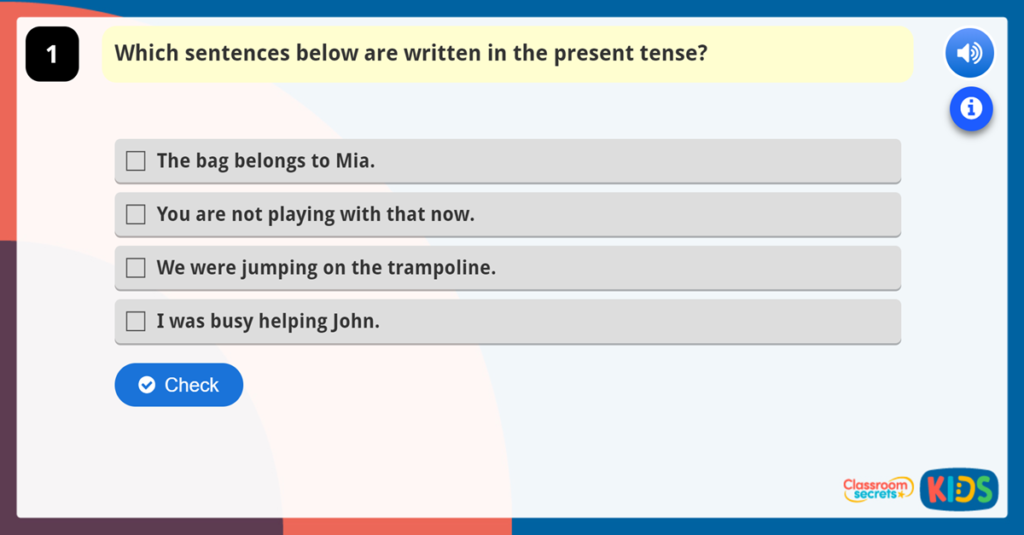Year 6 Spring Revision Set 10
Teacher Specific Information
This Year 6 Spring Revision Set 10 IWB Activity includes questions designed to check pupils’ understanding of some of the grammar skills taught so far. Pupils will identify the present tense, identify punctuation needed to complete a sentence, use apostrophes to create words in contracted form, highlight all words that should begin with a capital letter, and identify correct apostrophe use in a sentence.
National Curriculum Objectives:
English Year 2: (2G2.4) How the grammatical patterns in a sentence indicate its function as an exclamation
English Year 2: (2G2.1) How the grammatical patterns in a sentence indicate its function as a statement
English Year 4: (4G5.8) Indicating possession by using the possessive apostrophe with plural nouns
English Year 4: (4G5.8) The grammatical difference between plural and possessive –s
English Year 4: (4G5.8) Apostrophes to mark plural possession [for example, the girl’s name, the girls’ names]
English Year 3: (3G4.1b) Use of the present perfect form of verbs instead of the simple past [for example, He has gone out to play contrasted with He went out to play]
English Year 3: (3G4.1b) Using the present perfect form of verbs in contrast to the past tense
English Year 1: (1G5.1) Using a capital letter for names of people, places, the days of the week, and the personal pronoun ‘I’
Mathematics Year 1: (1M4c) Recognise and use language relating to dates, including days of the week, weeks, months and years
English Year 1: (1G5.1) Introduction to capital letters to demarcate sentences
English Year 1: (1G5.1) Beginning to punctuate sentences using a capital letter
English Year 1: (1G5.2) Beginning to punctuate sentences using a full stop
English Year 1: (1G5.2) Introduction to full stops to demarcate sentences
Terminology for pupils:
English Year 2: (2G2.1) statement
English Year 2: (2G2.4) exclamation








